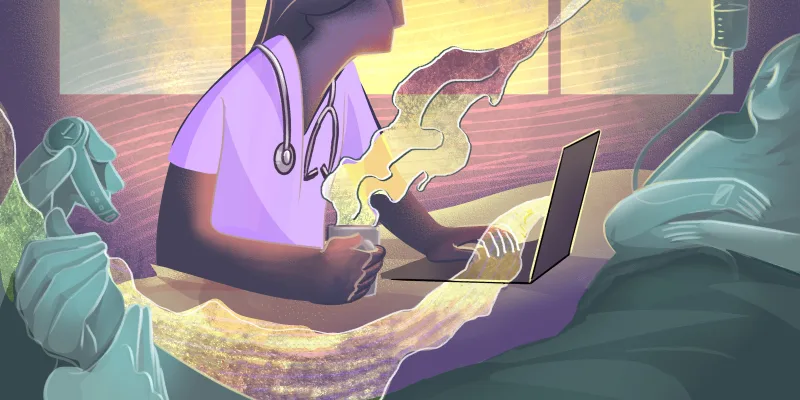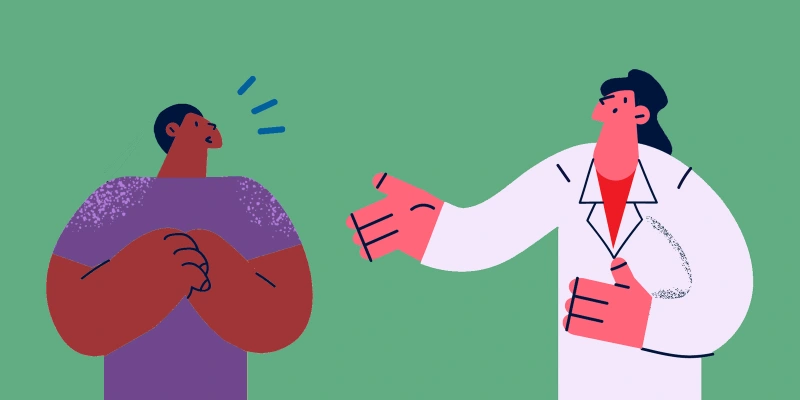As physicians, weight loss discussions are often unavoidable, regardless of our specialty. Even as an EM physician, I frequently found myself counseling patients on the importance of maintaining a healthy weight.
When diagnosing a patient with knee arthritis, they'd ask, "What can I do to help my knee in the long run?" I would respond, "Strengthening your muscles in your legs and losing weight can help alleviate the strain on your joints."
In cases where I suspected sleep apnea, I'd explain how weight loss could significantly improve symptoms and possibly eliminate the need for a CPAP machine. For patients newly diagnosed with hypertension or Type 2 diabetes, I'd share the transformative potential of even modest weight loss, explaining that a 10% reduction in body weight could potentially reverse these conditions.
This advice was firmly rooted in evidence-based medicine. Yet, there was a time when delivering it felt hypocritical, as I was carrying an extra 35 pounds myself, with a BMI categorizing me as overweight.
There was no hiding it — not from myself or my patients. My scrub pants no longer fit. I started using my white coat to conceal my body, plagued by the thought, "What must my patients think? Do they see the irony in me advising weight loss while visibly struggling with it myself?"
As physicians, whether we like it or not, we are role models. Studies have shown that patients are more likely to trust and act on advice from physicians who visibly exemplify the behaviors they advocate. A study published in Obesity found that patients who perceived their doctors as overweight were significantly less likely to trust their advice about healthy weight management.
Yet, here I was, an overweight doctor, wondering how I arrived at this place — and how I could change.
Medical doctors are not immune to the societal challenges of weight management. The 2025 Medscape Physician Well-Being Report found that 50% of physicians want to lose weight, with 69% of them wanting to lose 10 or more pounds. The demands of our profession — long hours, high stress, irregular schedules, eating on the go, and limited opportunities for self-care — create the perfect storm for unhealthy weight gain.
Through my own journey, I began to recognize that this struggle was not mine alone. In listening to the stories of other physicians, I found common patterns. Many of us developed certain eating habits during medical training that contributed to weight gain and made it harder to maintain a healthy lifestyle over the years.
How Did I Get Here?
As a child, teen, and young adult, I maintained a normal BMI and slender physique. But during medical school, residency, and practice, I adopted habits that set me on a path to weight gain.
Here are the four primary eating habits I — and so many other physicians — developed during training:
Disconnecting From Our Bodies' Signals
The rigorous demands of medical training teach us to ignore our bodies' needs. Hunger, thirst, sleep, even bathroom breaks are often pushed aside for the sake of patient care or taking care of the next to-do.
I recall this disconnection beginning as a third-year medical student on my surgical rotation where skipping meals was a frequent occurrence. While scrubbed into an 8-hour vascular surgery, my stomach growled, my mouth was dry, and I felt a little lightheaded under the bright operating lights. Yet, I told myself, "Just push through it." Over time, ignoring my body's signals for food, water, and rest became second nature.
A Scarcity Mindset Around Food
We've all heard the mantra: "Eat, pee, and sleep while you can." This mentality instills a sense of scarcity around food, leading to preemptive eating — whether we're hungry or not — just in case the next opportunity doesn't come.
I recall how in med school I'd stuff the pockets of my short white coat with granola bars and cookies, eating them even when I didn't feel particularly hungry. This habit was less about true nutrition and more about survival during unpredictable schedules.
Mindless Eating
During training, meals often become secondary to other tasks. Grand rounds required us to eat lunch while listening (and looking at unappetizing pictures at times). Charting late after a shift often meant eating a sandwich for dinner in front of the computer. Eating became a background mindless activity further disconnecting us from our hunger or satiety cues and making it easy to overeat.
Buffering With Food
Buffering, a term I learned during my life coach training, is the act of turning to external comforts to neutralize negative emotions. In the case of food, this behavior is commonly referred to as 'emotional eating.' Emotional eating involves consuming food for reasons other than physical hunger — such as stress, anxiety, boredom, or even the dread of tasks like charting.
For me, this habit became especially prominent when I started working in the ER where I first began stress eating. After a grueling shift, I'd neutralize the suppressed feelings from my day with cookies or a bowl of ice cream, telling myself I deserved it after the day I'd had. It wasn't just a treat; it was my way of coping with overwhelm, exhaustion, and stress. Unfortunately, this temporary relief only masked the underlying issues and contributed to my weight gain.
Patients Trust Doctors Who Lead by Example
Research underscores the importance of physician role modeling in patient care. A study published in Preventive Medicine found that patients whose physicians maintained a healthy weight were more likely to trust their advice on diet and exercise compared to patients whose physicians were overweight.
When doctors lead by example, they inspire confidence and demonstrate that achieving and maintaining a healthy lifestyle is both attainable and worthwhile. This dynamic underscores the urgency for us as physicians to prioritize our own health — not only for ourselves but also for the benefit of our patients.
The Path to Reconnection
My wellness and weight loss journey required a shift in how I approached my health. Here’s how I began to reconnect with my body and manage my weight more effectively:
Understanding My Body's Signals
I relearned how to interpret my body's needs. For instance, I often mistook headaches for hunger when they were actually signs of tension or dehydration. By addressing the root cause — stretching, taking a break, or hydrating — I avoided unnecessary eating and learned to care for my body properly.
Processing Emotions Without Buffering
I learned to acknowledge and process emotions like stress or frustration without using food as a crutch. Though rarely taught in medical training or personal life, this skill became central to my lasting health. By allowing myself to feel emotions instead of suppressing them, I broke free from emotional eating and achieved lasting weight loss.
Redefining Wellness in Medicine
As physicians, we've been trained to suppress our emotions and disconnect from our bodies to meet the demands of our profession. While this helps us manage immediate challenges, it takes a toll on our physical and emotional well-being and creates a gap between what we advise patients and how we care for ourselves.
Reconnecting with our bodies by addressing our needs and emotions can transform both our lives and those of our patients. When we model wellness and self-care, we embody the authenticity patients value.
Wellness isn’t just about practicing medicine with competence; it's about recognizing that caring for ourselves enhances the care we provide. By prioritizing our well-being, we not only elevate our professional excellence but also inspire our patients, families, and communities to live healthier, more balanced lives.
How do you model healthy behavior? Share in the comments!
Archana Reddy Shrestha, MD, MS is a certified physician life and weight coach, the founder of the Mama Docs School, and the creator of the Mama Docs Weight Loss Accelerator coaching program.
Image by Alphavector/Shutterstock






